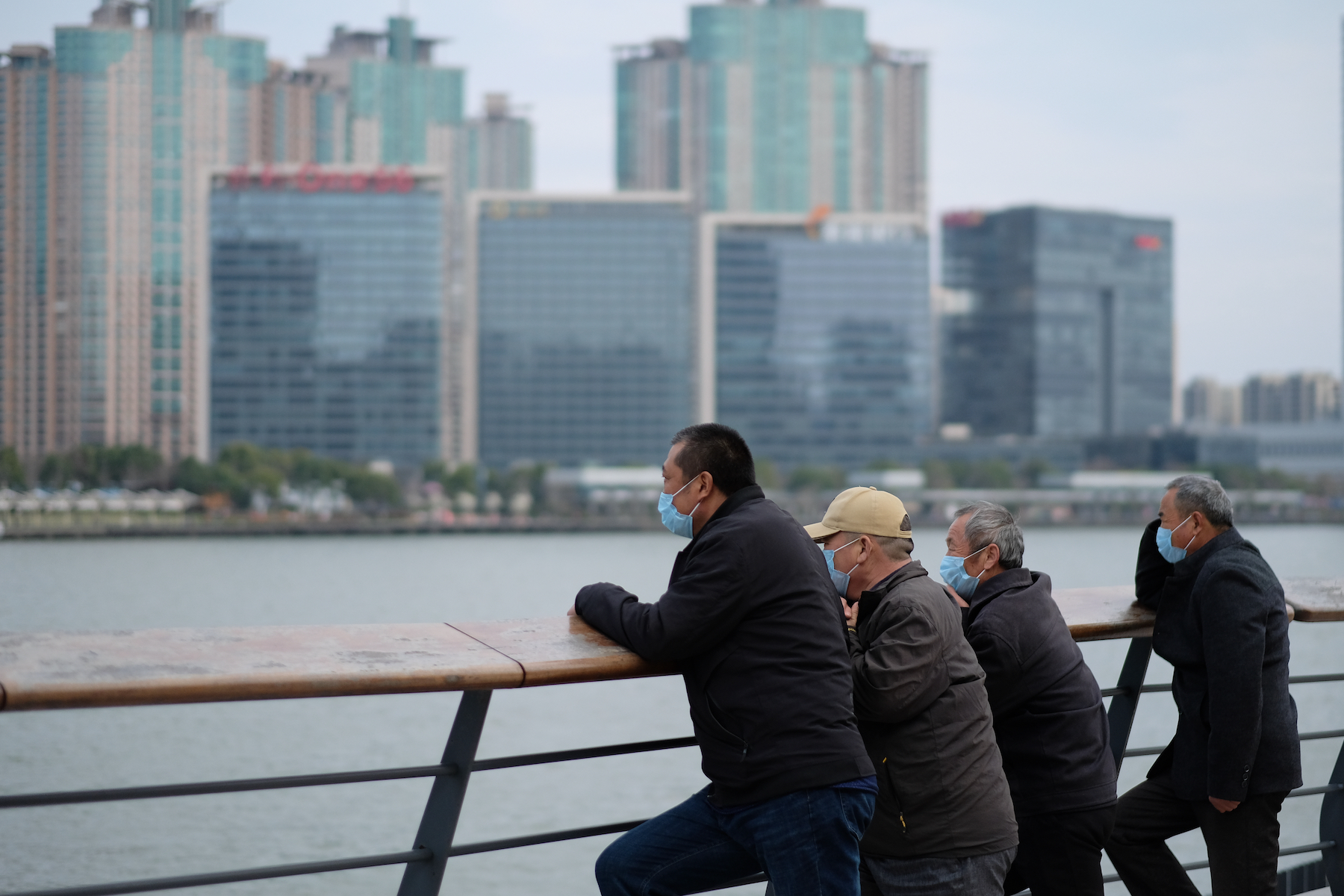In this edition:
- Demographic changes affect once-stable education jobs;
- Food delivery rider job market is becoming saturated;
- Drop in foreign trade creates manufacturing job shortage in China’s coastal regions;
- Older, rural workers migrate to cities for work but cannot find jobs.
Demographic changes affect once-stable education jobs
THE STORY: According to new research from Beijing Normal University on the effect of fertility rates on compulsory education in China, by 2035 China is expected to have a surplus of primary and junior high school teachers. China News Weekly interviewed Qiao Jinzhong, an associate professor in the university’s faculty of education, who described how his team found that as births have dropped from 17.23 million in 2017 to an estimated 9.56 million in 2022, primary education enrolment will drop accordingly in the coming years. For rural areas, the situation will be particularly marked. “The reality may be less optimistic than we predicted,” Qiao said, as new data shows a lower birth rate in 2021 than anticipated in their model.
THE CONTEXT: Some regions have implemented a "teacher exit mechanism" for primary and secondary schools. For example, in November 2022, the city of Ningbo, Zhejiang province, announced penalties that could lead to teachers’ dismissal, and annual assessments that teachers must pass to retain their positions. Teachers have raised concerns that these policies are not related to performance or management issues, but instead are to address population changes. Caixin reported on the situation in Xiamen, Fujian province, noting that the available teacher positions in first- and second-tier cities are no longer state-sponsored roles with full benefits, but instead are contract roles with lower pay and benefits. Out of 1,409 positions recruited in early 2023 in Xiamen, all were contract roles.
WHY IT MATTERS: The job of teacher in China’s compulsory education system had long been viewed as a stable one with decent benefits, but this may no longer be the case. The number of applicants for teacher qualification certificates in 2022 was a 66-fold increase from 172,000 ten years ago, but the demand for teachers is dropping. Some teachers are already considering alternate career paths. The Paper interviewed a kindergarten teacher who is considering factory work in light of recent challenges teachers face, from low pay to long hours to navigating difficult communications with students’ parents.
Food delivery rider job market is becoming saturated
THE STORY: Jiemian News reported that some delivery stations in Guangzhou are no longer recruiting food delivery riders. Managers of the stations in the Tianhe, Panyu, and Baiyun districts of the city said a large number of migrant workers are entering Guangzhou for employment, so Meituan is saturated with workers. A reporter with Red Star News investigated in Beijing, Shanghai, and Guangzhou and found a similar situation. Although spring is not the peak season for food delivery and fluctuations in customer orders, number of riders, and other factors like weather are normal in the industry, the public observed that delivery times had decreased, likely indicating that more riders were delivering.

Photograph: janusz.kolondra okonato / Shutterstock.com
THE CONTEXT: Workers interviewed by Banshu Finance pointed out that workers’ mentality has changed. In the recent past, people were content to work in factories for a few years, build up some savings, and then move on. But now, it is food delivery that has taken over the role of factory work. "It feels like 70 percent of the people around me are delivering food," said an Ele.me delivery rider in Guangzhou, as quoted by Red Star News. "I can see it on the road."
WHY IT MATTERS: The saturation of riders, particularly since the start of the pandemic when other jobs became more scarce, directly affects workers’ ability to make an income. With more riders competing for orders and the price per order dropping, riders have to work longer hours to earn enough to survive. The pause in recruiting will ensure that current riders can still earn something, but it does not solve deep industry problems or change the algorithm that dictates workers’ labour conditions. Nor does it address China’s overall job market and labour conditions that lead workers into one precarious industry or another.
Drop in foreign trade creates manufacturing job shortage in China’s coastal regions
THE STORY: China Business News reported that exports from China to the EU and the United States have fallen by 5 percent and 15.2 percent, respectively, in the first two months of 2023, and there is a gradual trend of shifting manufacturing to Southeast Asia. The various domestic and international conditions have combined to reduce factory job prospects for China’s migrant workers.
THE CONTEXT: According to the news channel Labor Info Cn, many electronics factories in the eastern, coastal areas have reduced the number of workers needed and cut wages. As one example, in Dongguan, Guangdong province, the legal minimum wage is currently 18.1 yuan per hour. Before the pandemic, temporary workers could earn 20 yuan or more per hour in the factories, but now rates below the legal minimum are considered desirable: 17-18 yuan is considered a high salary, and many people are waiting in line for jobs paying only 13-15 yuan per hour.
WHY IT MATTERS: An account called “Workers’ Platform” pointed out that most of the manufacturing sector’s workers are long-term, casual workers without labour contracts and lacking labour protections, and they often face overwork. Now, the current job market has allowed companies to not only lower wages but also screen workers by gender, age, ethnic group, and other criteria.
Older, rural workers migrate to cities for work but cannot find jobs
THE STORY: China Business News reported that most elderly, rural citizens are still working because of the absence of a robust social security system. Farmers receive an average of 188 yuan (U.S. $27) per month in pensions, which is only about 5 percent of the average monthly pension for urban workers (3,577 yuan). They are now migrating to China’s cities to seek opportunities to earn a wage.

Photograph: Robert Way / Shutterstock.com
THE CONTEXT: China’s citizens are living longer and the birth rate is declining, leading to stress on the social security system and an imbalance in the labour force compared to needed skills. As older workers are forced back into work to seek sources of income, they are heading to China’s cities and finding an unwelcome environment.
WHY IT MATTERS: China’s construction industry has been required to stop hiring workers past the legal retirement age, and other kinds of employers are also rejecting older applicants. Rural seniors are more likely to be willing to work jobs such as sanitation and security, but employers have cited lower productivity and exposure to legal disputes in the event of an accident as reasons for not hiring older workers.
CLB's February 2023 labour news roundup is available here.
Further CLB reading:
- Rural teachers raise age discrimination issue in their quest for equal pay (January 2022)
- What You Need to Know About Workers in China: Platform economy (last updated November 2022)
- Factories shut down or relocate, leaving workers out of work and with months of unpaid wages and benefits (March 2023)
- Extension of retirement age in Jiangsu province highlights gender effects of labour policies (March 2022)
